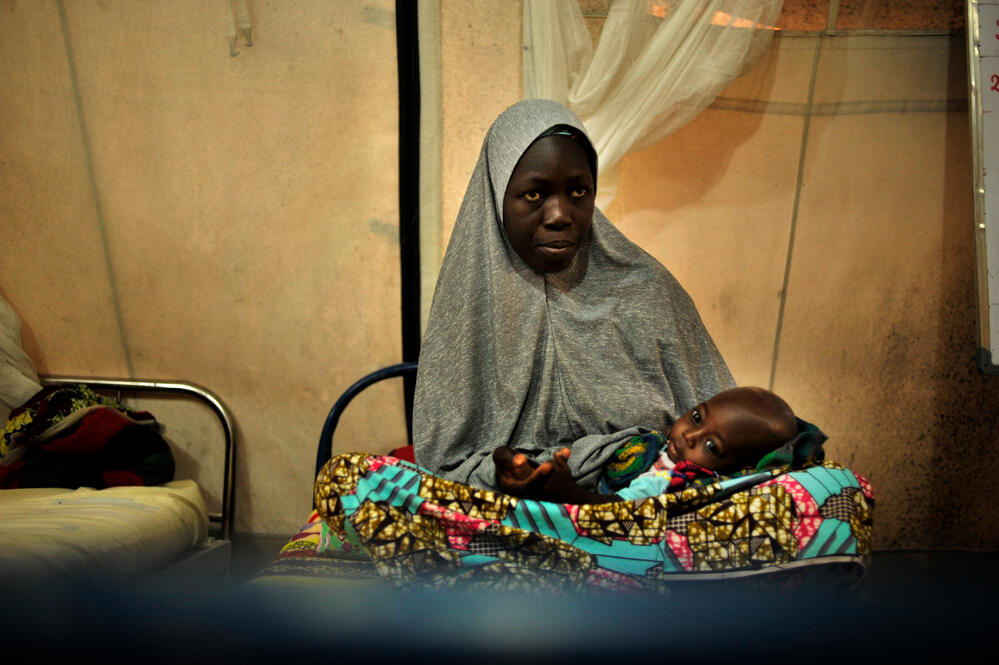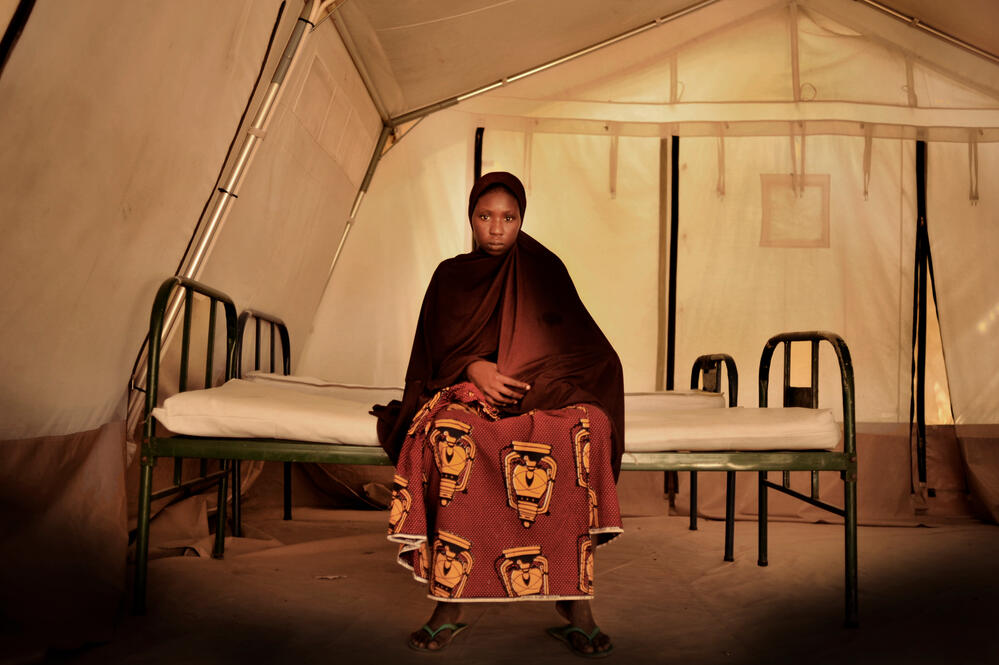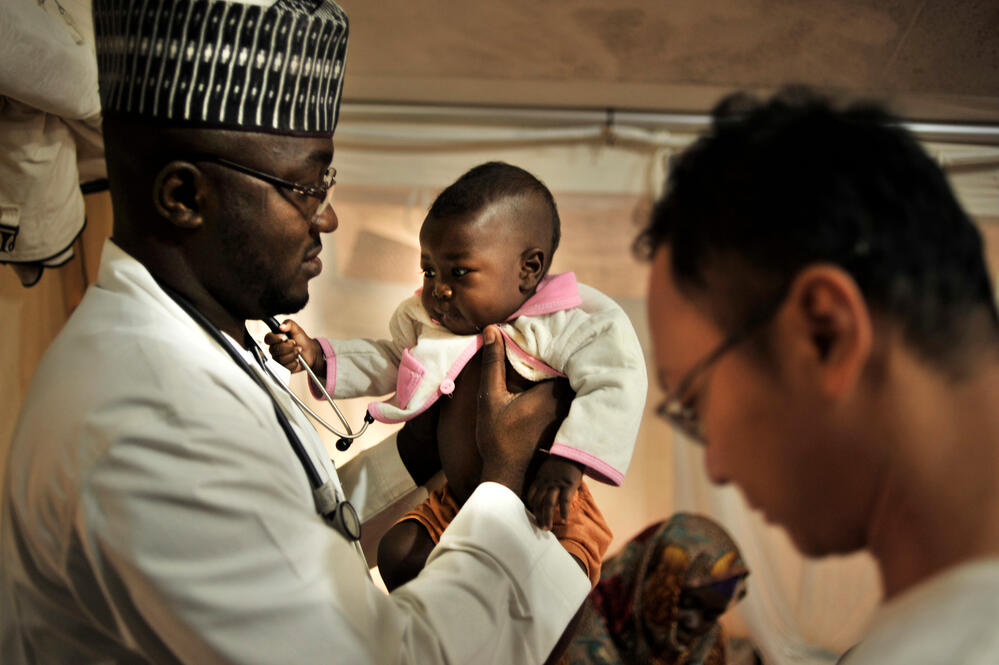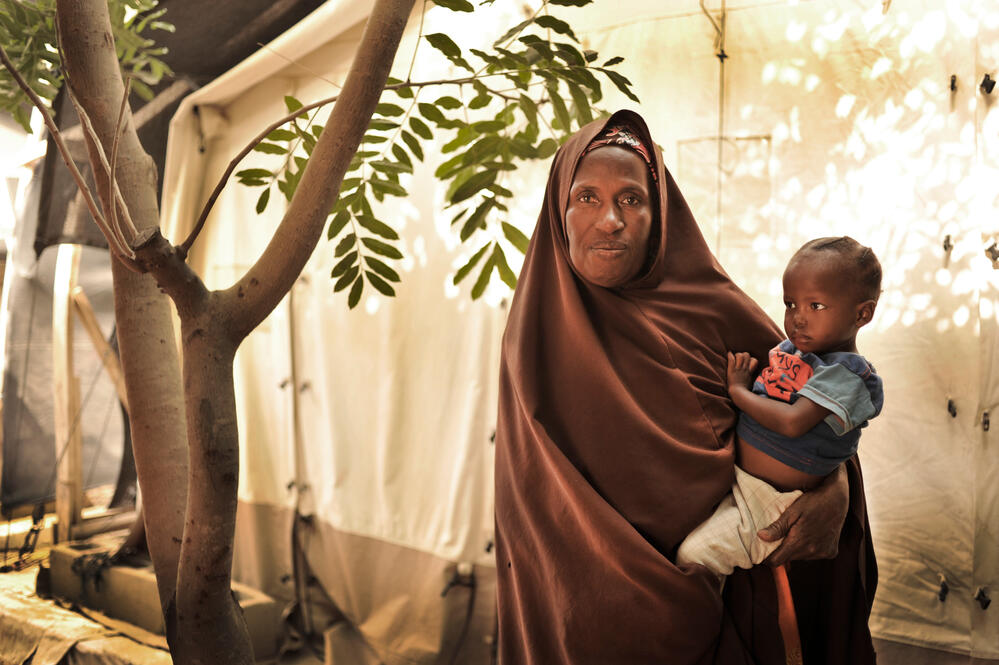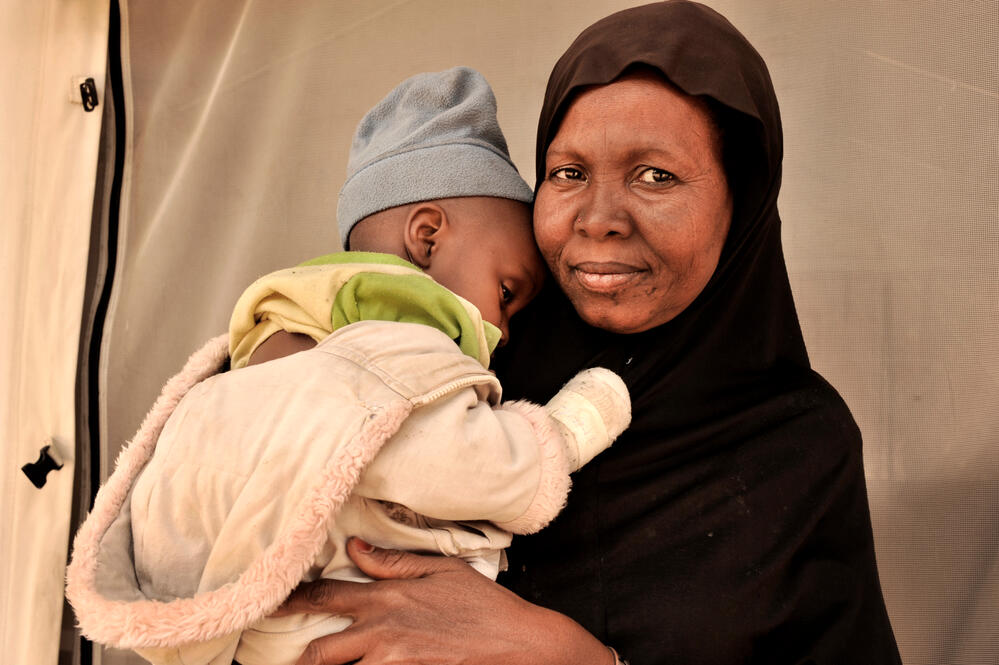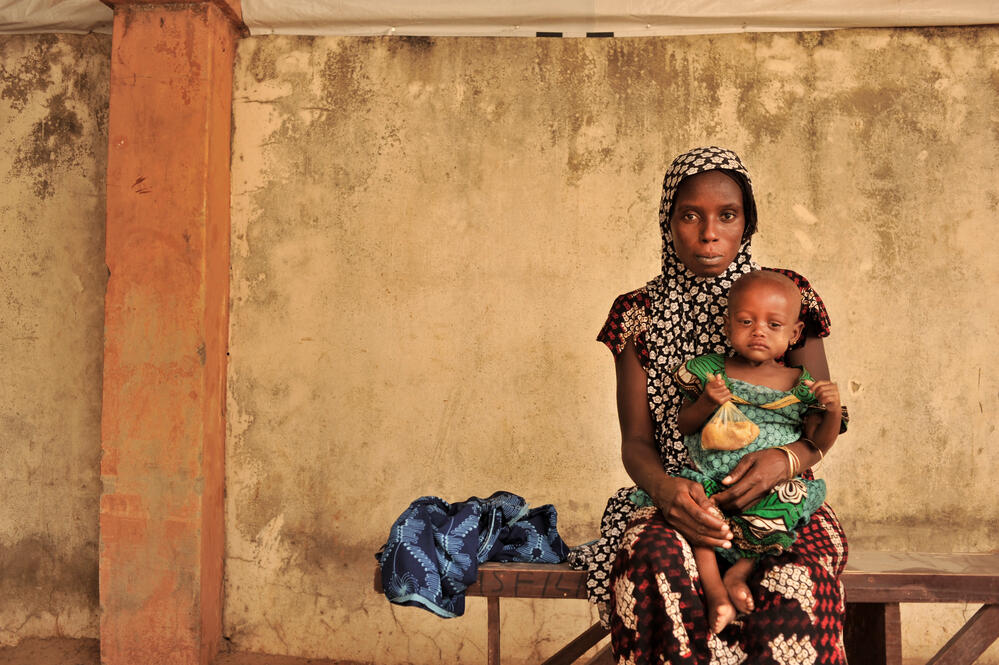Nigeria: The mums of Maiduguri and the struggle for food
Once there was a market in Tamsuwa. Farmers from other towns in Borno, a state in northeastern Nigeria, came weekly to trade in fruits, vegetables and livestock.
"But that's over," says Yafanna Modu, as she pats her baby's back under a brown veil.
Those who arrive in Tamsuwa now are usually armed groups.
"They steal our food and our animals. If you don’t have any, you must pay, or leave the town," she explains.
"Last time they came, they took a cow and two sheep. So nobody comes to town on market day."
Her husband, who sold vegetables and legumes, now has to collect firewood and try to sell it.
"We are going through a lot of hunger. We only have sorghum (a grain) and, from time to time, a soup that I prepare with dry leaves. There are days when our neighbours share their food with us, but there is not much more".
Learn more about malnutrition
Nine children die every minute because their diet lacks essential nutrients
For two weeks, Yafanna's baby, Fatima, has been in the inpatient therapeutic nutrition centre run by MSF in Fori, an area of Maiduguri, the capital of Borno State.
Fatima arrived relatively late in her illness, in a critical condition, with high fever and sweats.
"It happens frequently," says Bukar Mohammed, one of MSF's doctors. "There are children who die here, not because of the disease itself, but because they arrive with very advanced symptoms."
Forced from home
There are several reasons: some families do not know about the healthcare MSF is providing, others must come from far away and can’t afford transportation. Sometimes roads are blocked for security reasons.
A conflict between armed groups and the Nigerian army has forced two million people from their homes and hundreds of thousands more to become refugees in Niger, Cameroon and Chad in the past eight years.
"There are also families who go to other hospitals but discover that they must pay for the visit and for the medicines. So they turn around as they cannot afford the cost," explains Dr Mohammed.
The assistance MSF provides in Fori is free, and mothers stay in the facility with their children. "Here, mothers sleep with their baby, they have three meals a day and of course we also supply the medicines," explains Dr Fanny Bastogne.
Fori, with a capacity of 100 beds, sees a weekly average of 70 to 80 children, often with serious complications.
"The diet of these families is very low in protein. I always tell them that they must try to eat fish and meat. But of course, they do not have enough money to do so," says the doctor. Due to this poor diet, many mothers also find it difficult to breastfeed their children.
Thanks to a significant scale up in the provision of food aid in Maiduguri, rates of malnutrition have dropped since summer 2016 when they were alarmingly high.
However, there are still vulnerable pockets in the city, where people do not get the assistance they need, and any reduction in food aid would have deadly consequences.
When asked if meat or fish is ever available, Aisha Abdullahi shakes her head. "Meat and fish? No, we never eat them. But do you know what I do?” asks the 60-year-old woman, "I work cleaning and cooking for a family. So when I cook a stew with meat or fish, I take what's left over. What remains in the bottom of the pot. That's the meat and fish that we can eat at home," she says.
Dependent on aid
Aisha has been in the health facility for a few weeks after bringing in her granddaughter, Maimuna, who is already in the second phase of her treatment for malnutrition.
The little girl, who is an orphan, opens her eyes a lot and is attentive. It’s likely she will leave the centre soon.
Aisha is a widow. She lost her husband after a suicide bomb attack in Maiduguri. Her son in law has also died during the ongoing conflict.
"I have 10 children and grandchildren to take care of. Without my husband, the only money we have is the money I earn. None of my children can help me, they do not have much either. I have no help of any kind".
Aisha earns 3,000 naira a month, about six pounds. At another hospital, the visit alone would have cost her 10,000 nairas, with the medicines costing another 15,000.
Fatima and her 20-month-old baby – she has eight more children and this is the youngest – recently entered Fori.
She does not know exactly what happened to her child, who was admitted with fever, vomiting and diarrhoea. "We don’t have anything to eat”, she apologises, "only corn and guadua/bamboo leaves".
Malnutrition weakens the entire body and is especially damaging for young children. Because it can encourage other ailments or aggravate any existing conditions, MSF also treats conditions such as malaria or meningitis at the centre.
"It is important for children to have follow up appointments. Upon release, they come back in after a week and again at 15 days. If they do not attend the appointment, our community workers visit to check on their progress, and see if there is anything they need”, explains Dr Bastogne.
Young resilience
Dunguse Saale, a mother of four, came to MSF’s hospital three weeks ago.
"We fled to a camp for displaced people in Rann after Boko Haram came to our village and started killing innocent people, including my brother," she explains.
In their town, Dunguse and her husband had a small plot where they grew fruits and vegetables, which they exchanged for millet, yam and rice.
This gave the family a more complete diet than the corn-based food they rely on now.
"When I arrived three weeks ago, the baby was very sick, with a lot of fever and diarrhoea," she says.
But children recover quickly. Something that many of the MSF workers in this centre agree on is how impressive it is to see little ones get better in a very short time.
Dunguse’s son has improved enough for him to soon be discharged. The family will then return to the camp in Rann, where tens of thousands of families also face an uncertain future, reliant on aid, with no way of knowing when they will be able to go home.
MSF in Nigeria
Nigeria With over 190 million inhabitants, Nigeria is the most populous country in Africa.
Nigeria also has one of the fastest-growing economies, which is based primarily on the petroleum industry. However, a decade-long conflict has devastated the northeast of the country. Thousands have been killed and nearly two million people have been uprooted since fighting broke out between the military and non-state armed groups.
Médecins Sans Frontières/Doctors Without Borders (MSF) has been responding to disease outbreaks and emergency health needs in Nigeria for many years, focusing on maternal and paediatric healthcare throughout the country and scaling up our activities in the northeast as vast numbers of people caught up in the conflict depend on aid to survive.
